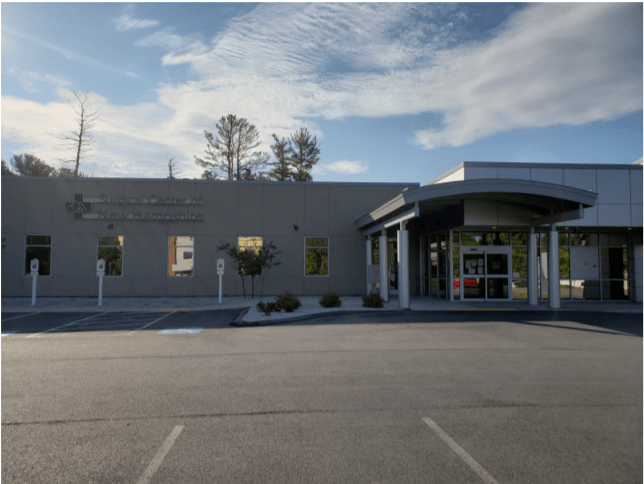A new year is the perfect time to take steps towards improving your health.
Welcome to 2022! While making changes can be a challenge, the effort is well worth it. You will feel better from the inside out. Improving your health starts with a healthy diet but it also includes being proactive about screenings and other healthy habits.
3 Tips to Good Health in 2022
We’ve put together some quick tips that just might help you have a healthier year.
1. Be Proactive with Regular Screenings
One of the best ways to a healthy new year is to be proactive when it comes to your health. We know you
probably don’t love going to the doctor for these screenings but they are essential for your health. They
might even catch problems early. As you get older, there are more recommended tests based on your age
and background. Two examples are a Colonoscopy and Colorectal screening.
2. Drink More Water
Take the initiative to drink more water instead of juice, soda, and other drinks. Water does a lot of your
health. Your body needs water for its regular function. On a normal diet, minimum water intake should be
at least 500 ML per day. However, this can vary by individual and can change based on medications,
medical conditions, and activity level. A general rule is if your urine is dark, you should drink more water.
Normal adults have a minimal need for water of about 1,600 ML per day. This can be obtained
from multiple sources, for example: ingested water (500 ML), water in food (800 ML), and water from
breathing (300 ML).
3. Get Your Move On
You don’t have to do intense, hardcore workouts to be active and healthy. While you can certainly benefit
from aerobics and physical activity, you can also benefit from a short walk as well. The goal is to get up
and get moving. Every bit of movement counts. One general rule is to only exercise the muscles you want
to keep.
If you’re ready to be proactive about your health through a colonoscopy or related gastroenterology services, give us a call today!
Colonoscopy Preventative Care
We mentioned that routine screenings are important so let’s talk about colonoscopies. A colonoscopy is a procedure designed to take a look at your large intestine. This procedure screens for cancer, among other potential health issues.
During a colonoscopy, the patient is sedated while a ?exible tube is inserted into the rectum and colon. The colonscope allows the doctor to visually see inside and look for abnormalities in the process.
You may also need a colonoscopy if you are experiencing symptoms like a change in bowel habits, constipation, rectal bleeding, or chronic diarrhea. In this case, the doctor will look for things causing the symptoms.
These screenings have been shown to help prevent colorectal cancer. A colonoscopy is recommended beginning at age 45 if no symptoms are present.
Facility Spotlight Surgical Center of NH at Derry

Interview with Surgical Center of NH Derry
What makes SCoNH stand out compared to other surgical facilities?
We provide individual personalized care in an efficient manner. Our team puts the patient first.
What are the most popular procedures performed at SCoNH?
Colonoscopy and Upper Endoscopy are our most popular. We also work with the specialties of GYN, ENT, Podiatry and General Surgery.
How has the facility changed policies and procedures in response to COVID?
Our goal is the health and safety of our patients, staff and doctors. We monitor the trends in the community and state and have adjusted testing and masking requirements accordingly.
What is your favorite part of working with the staff at SCoNH?
Our staff is truly of the team mindset. They work well as a team with each other, and also work well with our physicians. They collaborate together to achieve the best possible outcomes.
What is the latest technology used at SCoNH?
We are a new facility having opened in August 2020 and have the most up to date equipment for all of our specialties based on physician input and preferences. We have the latest in scopes and image technology. We also have integrated operating rooms for technology, monitoring and imaging capabilities.
What is SCoNH doing to ensure the safety of it’s patients in regards to
Covid-19?
All of our staff and providers are fully vaccinated. We have all patients tested for Covid-19 prior to their procedure. Family members are asked to wait outside of the facility or at home to limit the number of people on site, we do however have exceptions for minors and special needs situations. We participate in weekly information sessions with the state and also stay informed with CDC guidance.
Patient Education

Understanding Colon Cancer and Screenings
Regular screenings are meant to be used to screen for cancer. We use colonoscopies to help screen for colon cancer. This type of cancer will affect the large intestine.
Older adults are more prone to colon cancer but they are not the only individuals who might end up battling colon cancer. Colon cancer typically starts from polyps that can become cancerous.
All Gastrointestinal organizations and guidelines recommend removing polyps to reduce the risk of cancer. Most people with colon polyps or even colon cancer have NO symptoms. Alarm symptoms that necessitate a colonoscopy include rectal bleeding, weight loss, bloody stool, or a change in bowel habits.
In general, colon cancer screenings should begin at age 45, but if there is a history in your family, or something that might make you high risk, you will need screening at an earlier age.
Colon cancer may be found through a colonoscopy. Early detection of colon cancer can save your life!

